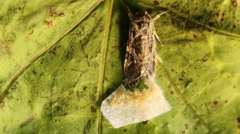Thousands of HIV-positive individuals, particularly vulnerable populations like sex workers, are grappling with the consequences of US aid cuts that have cut off their access to antiretroviral medications. The fallout raises concerns over reversing years of progress in combating the disease.
Deepening Crisis: Impact of US Aid Cuts on HIV Treatment in South Africa

Deepening Crisis: Impact of US Aid Cuts on HIV Treatment in South Africa
A significant reduction in USAID funding has left South African HIV-positive patients facing severe treatment disruption, with experts warning of a potential rise in new infections.
In South Africa, a growing number of HIV-positive patients are feeling the severe repercussions of funding cuts from the US government, primarily to the USAID program that has historically supported healthcare services. Gugu, a 54-year-old former sex worker who has been managing her condition with antiretroviral medications (ARVs), expressed her fears as her clinic in Johannesburg closed following the cuts announced earlier this year. Gugu was fortunate to receive a nine-month supply of ARVs before the clinic ceased operations, but she is now left to navigate the public healthcare system, notorious for its long wait times and potential stigma.
Many HIV-positive patients have relied on private clinics funded by USAID, and their closure poses significant risks, especially for sex workers. Gugu noted the difficulty they encounter at public hospitals, where they often wait for hours starting as early as 4 AM, losing valuable time that could be better spent earning a living. Moreover, the prevalent stigma surrounding sex work translates into a lack of empathy from healthcare professionals, which hampers the willingness of individuals to seek vital treatment.
In a recent report from UNAids, significant cuts in funding from global donors have been warned to jeopardize achievements made over the past decade in the fight against HIV/AIDS. With the annual rate of new infections having fallen dramatically, experts now fear that the ambitious targets set to eradicate new infections in the coming years could be lost. The same report highlights that, should recent cuts persist, there could be an additional six million new HIV infections by 2029.
Historically, concerted efforts, particularly during the administration of former President George W. Bush, significantly improved access and treatment for HIV/AIDS in Africa, including the introduction of programs like Pepfar, which funneled significant resources into combating the epidemic. Today, South Africa is home to over 7.7 million people living with HIV, the highest number globally, and reliance on state programs for antiretroviral treatment has never been more critical.
The Trump administration's funding cuts have prompted grave concerns from public health experts, who predict that we could see an escalation in HIV infections, alongside resurgences of other infectious diseases. “This could symbolize a reversal of decades of progress in HIV treatment,” warns Prof. Lynn Morris from Johannesburg's Wits University. Gugu emphasized that treatment adherence is crucial for survival, especially for marginalized communities, and abandonment of care due to unwelcoming hospital settings could have dire consequences.
The cuts have also disrupted crucial research aimed at advancing treatment options, including a potential HIV vaccine. With current research projects stalling due to diminished budgets, delays in clinical trials are anticipated, which impacts future readiness to combat the virus's mutations. South African researchers have been pivotal in developing preventative medicines like PrEP, and significant welfare also hinges on maintaining these research streams.
While the South African government has taken steps toward securing alternative funding with assistance from organizations like the Bill and Melinda Gates Foundation, the funds are a fraction of what was needed to fill the void left by US aid cuts. “This loss could have lasting ramifications not just locally but globally,” warns Dr. Phethiwe Matutu, leader of Universities South Africa.
As Gugu reflects on her situation, her hope for a future cure dwindles. “I want to live to take care of my child. This issue isn’t just about us now, but it involves the next generation as well,” she mentions, highlighting the long-term effects of the aid cuts on vulnerable communities and future healthcare in South Africa.





















